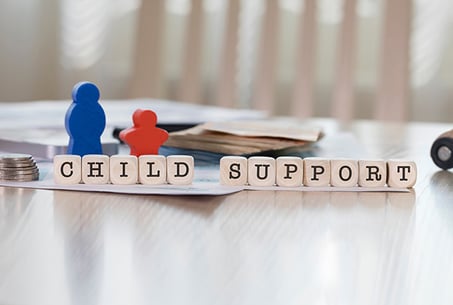(Part 1) What it Takes to Partner with Your State’s Child Support Agency
3 min read
Date Published: 02/12/2019
Last Updated: 11/22/2024
National Fatherhood Initiative Blog / Latest Articles
3 min read

Made Men founder Nelson Gabriel is one of the most creative and energetic leaders that I’ve met who seeks to improve his community by developing more involved, responsible, committed dads.
The motto of his Kansas City-based nonprofit is to “empower individuals and communities to success through education, training, and connections to sustainable resources.” One of the primary ways in which Made Men pursues its mission is to help dads who struggle with child support to reduce their arrears.
As a result, Made Men has joined a growing number of organizations and statewide initiatives across the country that help noncustodial dads establish affordable child support payments or reduce arrears (i.e. what they owe and haven’t been able to pay). This is the first of a two-part post that describes two statewide efforts, one created by local organizations that that approached their state child support agency and another created by a state child support agency that approached local organizations.
The Case of Kansas
When I learned about the arrears-reduction component of Made Men, I contacted Nelson to learn how they put it in place and about its details. As is the case with so many effective interventions, I learned that a collaborative effort was key to establishing it. And this is where the story he shared became more than just about Made Men. It became a story about an entire state.
Nelson shared that a group of Kansas organizations with fatherhood programs came together and, through a series of discussions, created a proposal that they presented to officials with Child Support Services (CSS) at the Kansas Department for Children and Families. Each of these organizations recognized that to mount a successful effort to help noncustodial dads with the child support challenge, it would help to show CSS how widespread the challenge is, present a proposal with support from communities across the state, and propose a simple, flexible solution that could work in any fatherhood program.
The proposal centered on CSS establishing a program that consisted of tiered incentives that would reduce a dad’s arrears. The program had three components.
CSS officials agreed to implement the program, which it has amended several times with additional incentives.
According to Nelson, the current CSS program includes the following reductions and criteria:
The flexibility enters the program through the wrap-around services and associated reductions that an organization might provide. Examples include:
The Life Strategies Program
As I mentioned earlier, the organizations that created the proposal recognized that the program had to work in any fatherhood program. Here’s how it plays out in Made Men.
Made Men serves dads through its Life Strategies program. The components of this 120-hour program include:
Dads can receive a maximum reduction in their child support arrears of $3,500. Dads who complete the entire program are eligible for employment by national and local businesses through an agreement each business established with Made Men. (National partners include FedEx and UPS.) In addition, up to two program graduates can acquire a full-ride scholarship to attend Grantham University.
What it Takes
I asked Nelson what are the most important pieces of advice he’d give to an organization that wants to establish a similar partnership with their state’s child support agency. He said:
Look for the second part of this post next week.
Do any of the noncustodial dads you serve struggle with child support?
Have you thought about the value to noncustodial dads of adding a reduction in child support arrears to your fatherhood program?
Date Published: 02/12/2019
Last Updated: 11/22/2024
Download this free guide for a proven 7-step roadmap—from making the case and securing funding for your program, to launching and measuring real results!


Train Your Staff
Fatherhood Programs
Fatherhood Data
© 2026 National Fatherhood Initiative®. All rights reserved.